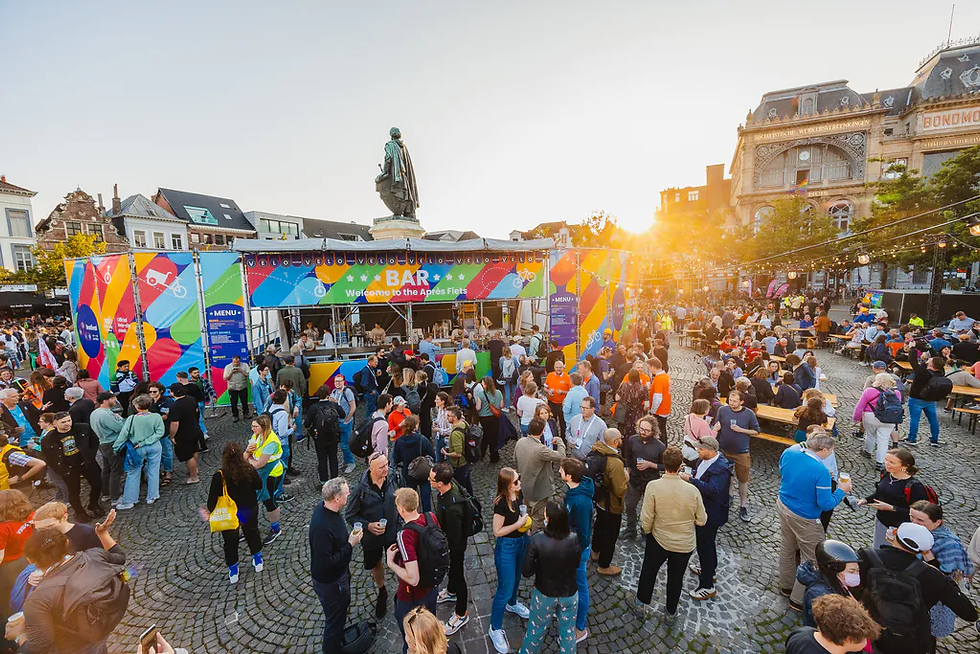Au Goût du Terroir - project management
- David Everard

- Feb 1, 2023
- 3 min read
Summary:
Within the framework of ESCH2022, European Capital of Culture and its ReMix approach, the nature parks Our and Upper Sûre and the Natur- & Geopark Mëllerdall have joined forces with the municipality of Käerjeng and ProSud to organise a taste festival in the form of a living market on 30 September and 1 and 2 October 2022 in Käerjeng (Bascharage).
EVERARD Consulting & Communication was entrusted with the following tasks:
Organisation and co-ordination of the Taste of Country living market on two sites in the municipality of Käerjeng with 60 national and international stands
Creation of the website
Copywriting of the texts
Follow-up of the entire communication in close cooperation with Lardographic
Organisation and management of workshops, wine, spirit and coffee tastings and 8 cooking show events with nationally recognized chefs
Organisation and management of two Food-Villages with the Food-Trucks that best match the values of the event
Logistical and financial follow-up
Au Goût du Terroir
The European Capital of Culture project is a European Union initiative that aims to highlight the cultural diversity and richness of Europe. The project takes place each year in a different European city and aims to promote cultural exchange, encourage creativity and stimulate local economic development. The European Capital of Culture 2022 was held in Esch, Luxembourg.
A project that targeted food resilience
Food resilience refers to the ability of a community to maintain and access a stable and diverse food supply, despite challenges such as climate change, economic shocks and political instability. Cultural diversity refers to the variety of cultural traditions, values and practices that exist within a society.

Promoting cultural exchange through events such as the European Capital of Culture project can help to build food resilience by drawing attention to different food traditions and practices and by promoting the exchange of knowledge and resources between communities. This can help to increase awareness of and access to diverse food options, foster a better understanding and appreciation of different food cultures, and encourage the preservation of traditional food practices that are at risk of disappearing. In addition, cultural exchange events can give communities the opportunity to share ideas and solutions to food-related challenges, such as reducing food waste and improving access to healthy and sustainable food options.
There are several reasons why linking food resilience and cultural diversity through projects such as the European Capital of Culture can benefit society:
1. Strengthening local food systems: By highlighting the importance of cultural diversity in food and promoting the exchange of knowledge and resources, these projects can help strengthen local food systems and increase community resilience.
2. Preserving cultural heritage: Projects such as the European Capital of Culture can help preserve cultural heritage by drawing attention to traditional food practices that are in danger of disappearing. This can help to ensure that future generations will be able to experience and enjoy the rich cultural diversity that exists within society.
3. Encouraging cultural exchange: By encouraging cultural exchange, these projects can foster a greater understanding and appreciation of different food cultures. This can lead to greater empathy and tolerance between communities, which can help to create a more harmonious and inclusive society.
4. Boosting local economies: Projects such as the European Capital of Culture can also boost local economies by attracting visitors and promoting local businesses. This can help create jobs and stimulate economic growth, which can have a positive impact on communities.
Photos: Caroline Martin for Naturpark Our
Strengthening local and regional production
Linking food resilience and cultural diversity through projects can help strengthen local and regional food production. By promoting the exchange of knowledge and resources, these projects can help to increase awareness and access to diverse food options. This can encourage the use of locally sourced traditional ingredients and the preservation of local food practices, which can help strengthen local food systems and reduce dependence on distant, centralized food sources.
Furthermore, by drawing attention to the importance of cultural diversity in food, these projects can help raise awareness of the need for greater food security and encourage the development of sustainable food production practices. By promoting a better understanding and appreciation of different food cultures, these projects can also help to stimulate demand for local and culturally diverse foods, which can provide a market incentive for local and regional food production.
Overall, linking food resilience and cultural diversity through projects such as the European Capital of Culture can play an important role in promoting the development of sustainable and culturally rich local and regional food systems and help to create a more dynamic, resilient and culturally rich society.




























Comments